Breaking News


Popular News

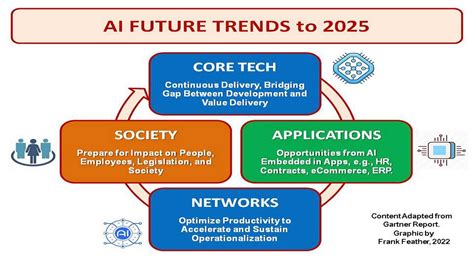
Discover the latest trends in artificial intelligence for 2025, including AI in healthcare, autonomous vehicles, customer service, cybersecurity, education, and ethical considerations.Artificial Intelligence (AI) continues to revolutionize various industries, and as we approach the year 2025, it is apparent that the impact of AI will only continue to grow. In this blog post, we will explore the trends and developments in AI across different sectors, including healthcare, autonomous vehicles, customer service, cybersecurity, education, and ethical considerations.
AI in Healthcare has already been making significant strides in improving patient care, disease diagnosis, and treatment plans. Similarly, the development of Autonomous Vehicles has gained momentum, promising safer and more efficient transportation systems. AI in Customer Service has also been transforming the way companies interact with their customers, providing personalized and efficient support.
Furthermore, enhanced cybersecurity with AI is becoming increasingly crucial in combating cyber threats and protecting sensitive information. AI in Education is reshaping the learning experience for students, offering personalized learning paths and educational support. Finally, we will also touch upon the ethical considerations in AI development and deployment, as it is essential to ensure that AI technologies are developed and utilized responsibly.
Join us as we delve into the exciting future of AI and the incredible advancements we can expect to see by 2025.
Contents
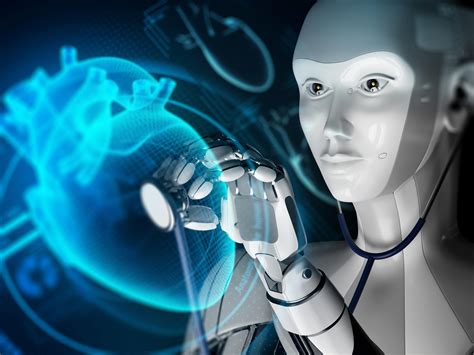
The use of Artificial Intelligence (AI) in healthcare is a rapidly growing field with the potential to revolutionize the industry. AI has the ability to analyze complex medical data and provide insights that can improve patient outcomes and streamline workflows. One of the key trends in AI healthcare is the development of predictive analytics models that can forecast potential health issues and recommend personalized treatment plans.
Furthermore, AI-powered diagnostic tools are being used to interpret medical images and detect early signs of diseases such as cancer. This technology has the potential to improve diagnostic accuracy and reduce the time it takes to diagnose patients. In addition, AI chatbots are being integrated into healthcare systems to provide 24/7 support to patients, helping to alleviate the burden on healthcare professionals and improve patient satisfaction.
Another exciting development in AI healthcare is the use of robotics for performing surgical procedures. AI-powered surgical robots can provide greater precision and dexterity than human surgeons, leading to improved surgical outcomes and faster recovery times for patients. In fact, AI is also being used to develop personalized medicine, tailoring treatments to an individual’s genetic makeup and medical history.
In conclusion, the future of AI in healthcare is bright, with the potential to significantly improve patient care, optimize workflows, and advance medical research. As technology continues to advance, we can expect to see even more innovative applications of AI in the healthcare industry, ultimately leading to better health outcomes for patients around the world.
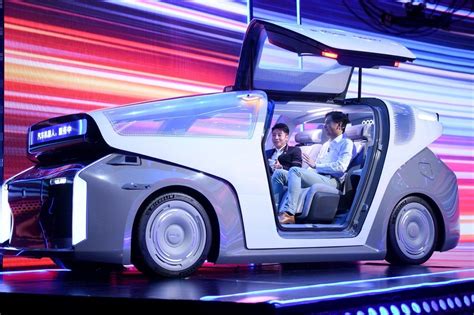
Autonomous vehicles, also known as self-driving cars, are poised to revolutionize the way we travel in the near future. With the advancement of Artificial Intelligence (AI), these vehicles are becoming smarter and safer, promising to reduce accidents caused by human error. The development of autonomous vehicles has been made possible by the integration of AI technologies such as machine learning and computer vision.
One of the key trends in autonomous vehicles is the use of LiDAR (Light Detection and Ranging) technology, which helps the vehicles to sense and map their surroundings in real-time. This enables them to make split-second decisions and navigate through complex road conditions, leading to a significant improvement in safety and efficiency.
Furthermore, the future of autonomous vehicles is also closely linked to the development of 5G networks, which will provide the high-speed and low-latency connectivity required for seamless communication between vehicles and infrastructure. This will pave the way for fully autonomous driving experiences, where vehicles can communicate with each other to avoid collisions and optimize traffic flow.
As we look towards 2025, the advancements in AI and technology are expected to propel autonomous vehicles into widespread adoption, transforming the way we commute and travel on a global scale.
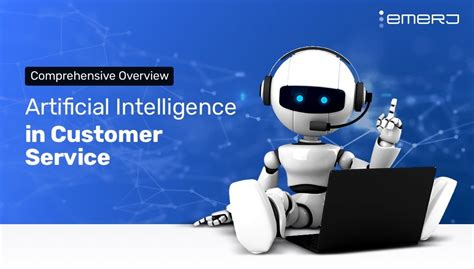
Artificial Intelligence (AI) has revolutionized the customer service industry, providing businesses with innovative solutions to improve customer experience. With the use of AI, customer support can be available 24/7, allowing businesses to cater to their customers’ needs at any time of the day.
AI-powered chatbots and virtual assistants have become integral parts of customer service, providing quick and efficient responses to customer inquiries. These AI tools are capable of understanding natural language and can interact with customers in a human-like manner, making the customer service experience more personalized and effective.
Furthermore, AI analytics tools can analyze customer data to identify patterns and trends, allowing businesses to anticipate customer needs and provide proactive support. This can ultimately lead to higher customer satisfaction and loyalty.
Overall, AI has the potential to transform the customer service landscape, making it more efficient, personalized, and responsive to customer needs.
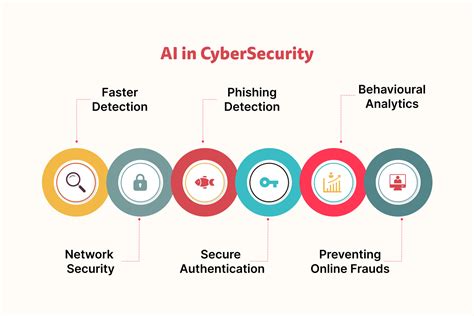
With the increasing complexity and volume of cyber threats, cybersecurity has become a major concern for organizations and individuals alike. In recent years, artificial intelligence (AI) has emerged as a crucial tool in enhancing cybersecurity measures. By utilizing AI algorithms and machine learning, organizations can effectively detect and respond to cyber threats in real-time, thereby strengthening their overall security posture.
One of the key benefits of using AI in cybersecurity is its ability to analyze large volumes of data and identify patterns that may indicate a potential attack. Moreover, AI can automate the process of threat detection and response, reducing the burden on human analysts and enabling faster and more accurate decision-making. This not only improves the efficiency of cybersecurity operations but also enables organizations to proactively address threats before they escalate.
Furthermore, AI can be utilized to develop predictive models that can anticipate future cyber threats based on historical data and ongoing trends. This proactive approach allows organizations to stay ahead of potential threats and implement preventive measures to mitigate the risk of a cyber attack. Additionally, AI can continuously adapt and learn from new data, ensuring that cybersecurity measures remain effective and up-to-date in the face of evolving threats.
| Key Developments in AI and Cybersecurity | Impact on Cyber Defense |
|---|---|
| Advanced threat detection and response | Reduction of false positives and swift remediation of threats |
| Predictive modeling and proactive threat prevention | Anticipation of future threats and implementation of preventive measures |
| Continuous learning and adaptation | Effective and up-to-date cybersecurity measures against evolving threats |
In conclusion, the integration of AI into cybersecurity practices is poised to revolutionize the way organizations defend against cyber threats. By harnessing the power of AI algorithms, machine learning, and predictive modeling, organizations can enhance their cyber defense capabilities, detect and respond to threats in real-time, and proactively address potential security vulnerabilities. As AI continues to evolve, it will play an increasingly critical role in safeguarding sensitive data and ensuring the resilience of cybersecurity infrastructure in the digital age.
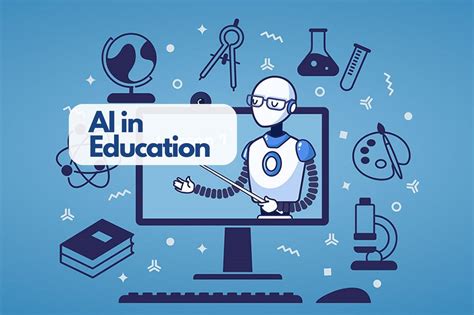
Artificial Intelligence is revolutionizing the field of education, with various applications and tools being developed to enhance the learning experience for students. One of the key trends in AI education is the personalized learning experience, where AI algorithms are used to assess students’ strengths and weaknesses, and tailor learning materials to their specific needs.
Furthermore, AI-powered educational tools such as virtual tutors and chatbots are making learning more interactive and engaging, providing students with immediate feedback and support. This not only helps in improving academic performance but also fosters a more independent and proactive approach to learning.
Moreover, AI is being utilized to streamline administrative tasks in educational institutions, such as admissions, scheduling, and grading, freeing up time for educators to focus on teaching and mentoring. This not only improves efficiency but also allows teachers to provide more individualized attention to their students.
Additionally, the use of AI in education is also raising concerns about data privacy and ethical considerations. As educational institutions collect and analyze a significant amount of student data, there is a need to ensure that this information is protected and used responsibly, while also addressing potential biases in AI algorithms.
| Benefits of AI in Education: | Challenges and Ethical Considerations: |
|---|---|
|
|
|
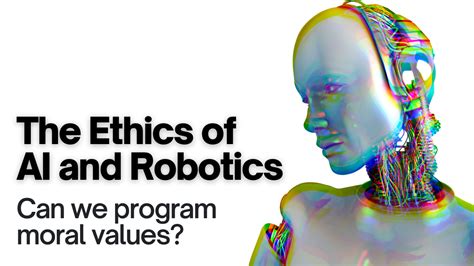
6. Ethical Considerations in AI
Ethical Considerations in AI
In the fast-paced world of technological advancements, the integration of Artificial Intelligence (AI) has become increasingly prevalent. As the capabilities of AI continue to expand, there are several ethical considerations that must be addressed to ensure responsible development and deployment. One of the primary concerns is the potential for AI to perpetuate and even exacerbate existing social and economic inequalities. As AI systems rely on vast amounts of data for training and decision-making, there is a risk of reinforcing biases and prejudices present in the data, leading to unfair outcomes.
Furthermore, the use of AI in sensitive areas such as healthcare and law enforcement raises significant ethical questions. For instance, the use of AI algorithms in healthcare diagnosis and treatment recommendations must prioritize patient safety and well-being while respecting medical ethics and patient privacy. Similarly, the use of AI in law enforcement and judicial decision-making should be subject to rigorous oversight to prevent wrongful convictions and violations of individuals’ rights.
Another critical ethical consideration in AI pertains to the potential impact on employment and the workforce. As AI technologies automate various tasks and processes, there is a legitimate concern about job displacement and the need for retraining and upskilling the workforce to adapt to the evolving job market. Moreover, the ethical implications of AI in terms of surveillance, privacy, and data security cannot be overlooked, especially in the context of mass data collection and algorithmic decision-making.
In response to these ethical considerations, there is a growing emphasis on the development and implementation of ethical guidelines, standards, and regulatory frameworks for AI technologies. Organizations and industry stakeholders are increasingly recognizing the importance of ethical AI design, deployment, and use. This includes promoting transparency, accountability, and fairness in AI systems, as well as ensuring that they align with legal and ethical norms.
Moreover, ethical considerations in AI extend to the broader societal impact of AI technologies, necessitating a multidisciplinary approach that involves collaboration between technology experts, policymakers, ethicists, and other relevant stakeholders. This collaborative effort can help address the complex ethical challenges associated with AI and ensure that its advancement is aligned with the interests and values of society as a whole.

What are some current trends in artificial intelligence?
Some current trends in AI include advanced machine learning, natural language processing, and AI-powered automation.
How will artificial intelligence impact different industries in 2025?
AI is expected to revolutionize various industries such as healthcare, finance, transportation, and customer service with its advanced capabilities.
What are some ethical concerns surrounding artificial intelligence?
Ethical concerns related to AI include data privacy, bias in algorithms, job displacement, and the potential for autonomous weapons.
What developments in AI are expected by 2025?
By 2025, AI is expected to make significant advancements in areas such as autonomous vehicles, healthcare diagnostics, personalized marketing, and robotics.
How will AI shape the future of work?
AI will likely lead to the automation of routine tasks, the creation of new job roles focused on AI implementation and maintenance, and the need for upskilling and reskilling the workforce.
What are some potential risks associated with the future of artificial intelligence?
Potential risks include the misuse of AI for malicious purposes, the concentration of power among AI developers, and the existential threat of superintelligent AI.
What steps can be taken to ensure responsible AI development and deployment?
Steps to ensure responsible AI development and deployment include creating ethical guidelines, increasing diversity in AI teams, promoting transparency in AI algorithms, and fostering public awareness and discussion on AI-related issues.